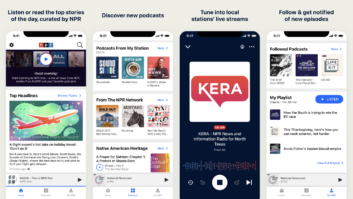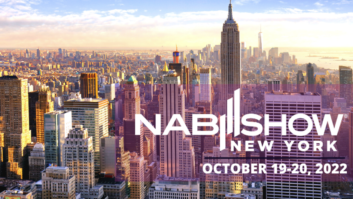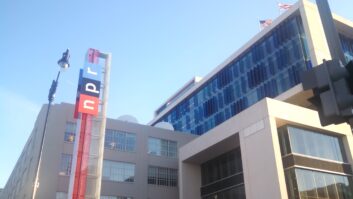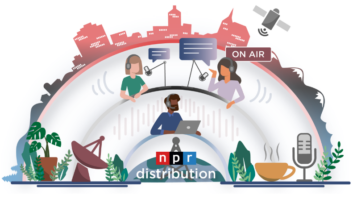One in a series this week delving into the recently released “State of the News Media” report.
NPR’s weekly broadcast audience was relatively on par with the year before, according to Pew Research’s State of the News Media 2016 report, at about 26 million terrestrial listeners.
Where the public radio broadcaster did see a solid bit of growth was on its more recent platform expansions, podcasts and apps.

Courtesy of Pew Research
NPR’s main app, NPR News, which launched in 2009, was a mixed bag in terms of downloads in 2015. It saw its downloads on Android devices cut almost in half from 2014, while numbers were also down with the iPhone and iPad, though at a much less significant rate, only 37,000 between the two.
However, the broadcaster’s other primary app, NPR One, which launched in 2014, brought in downloads that were not available when Pew did the research in 2015; so over 600,000 downloads between Android and iPhone devices were added. And while downloads were down for most devices, the average number of monthly sessions for all but NPR News on the iPad were up in this year’s study. NPR also added a new NPR One staff position in early 2016 that will seek to increase local content available on the app.
Likewise, NPR expanded its podcast portfolio and its number of unique weekly podcast users. The addition of four new podcasts to its stable—“Invisibilia,” a “Hidden Brain” weekly podcast, “NPR Politics Podcast,” and “Embedded”—helped increase weekly podcast users to an average of 2.5 million, up from the 2 million NPR saw in 2014.
However, the study takes note of some recently reported potential issues regarding podcasts and the relationship between NPR and traditional terrestrial stations.
In the first few months of 2016 there have been a couple of incidents involving how podcasts interact with traditional radio, according to Pew. In March, NPR decided that it should not officially endorse podcasts on air, though they could be mentioned. In May, WBAA — an NPR station at Purdue University — said it would no longer broadcast “This American Life” because of its program deal with Pandora; it later reversed that decision. Pew indicates that these could be indications that traditional radio stations are concerned about potential loss of revenue to these emerging digital platforms.
NPR’s also made an effort to expand its broadcast reach, according to the study, across all three of its main affiliate types: member organizations, member stations and stations airing NPR programming.
The study included numerous graphics and additional information about both NPR and PBS; to read the results about public broadcasting, click here.
Related:












